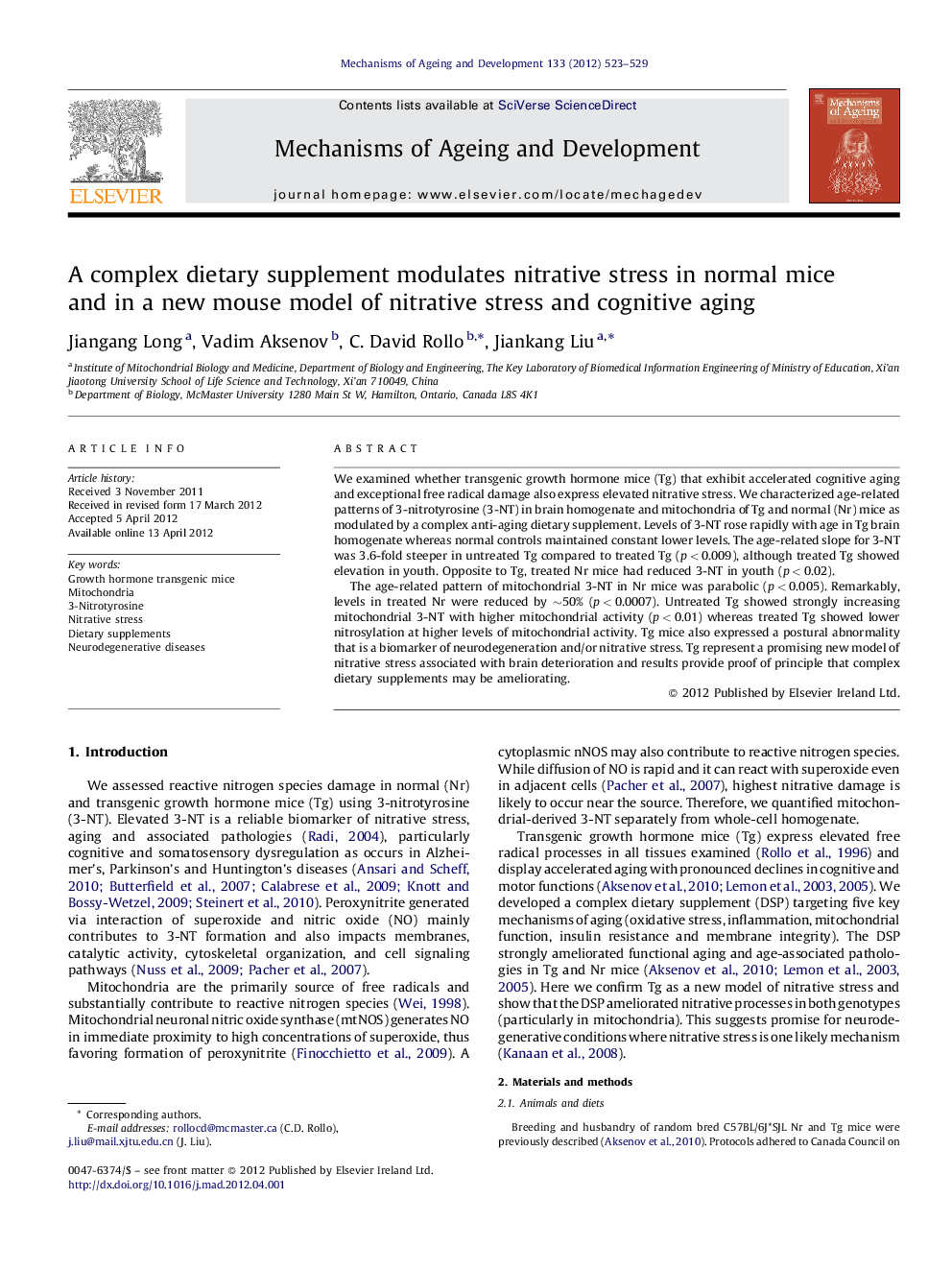| Article ID | Journal | Published Year | Pages | File Type |
|---|---|---|---|---|
| 1919234 | Mechanisms of Ageing and Development | 2012 | 7 Pages |
We examined whether transgenic growth hormone mice (Tg) that exhibit accelerated cognitive aging and exceptional free radical damage also express elevated nitrative stress. We characterized age-related patterns of 3-nitrotyrosine (3-NT) in brain homogenate and mitochondria of Tg and normal (Nr) mice as modulated by a complex anti-aging dietary supplement. Levels of 3-NT rose rapidly with age in Tg brain homogenate whereas normal controls maintained constant lower levels. The age-related slope for 3-NT was 3.6-fold steeper in untreated Tg compared to treated Tg (p < 0.009), although treated Tg showed elevation in youth. Opposite to Tg, treated Nr mice had reduced 3-NT in youth (p < 0.02).The age-related pattern of mitochondrial 3-NT in Nr mice was parabolic (p < 0.005). Remarkably, levels in treated Nr were reduced by ∼50% (p < 0.0007). Untreated Tg showed strongly increasing mitochondrial 3-NT with higher mitochondrial activity (p < 0.01) whereas treated Tg showed lower nitrosylation at higher levels of mitochondrial activity. Tg mice also expressed a postural abnormality that is a biomarker of neurodegeneration and/or nitrative stress. Tg represent a promising new model of nitrative stress associated with brain deterioration and results provide proof of principle that complex dietary supplements may be ameliorating.
► We characterized the 3-nitrotyrosine level in the brain homogenate and mitochondria of growth factor transgenic (Tg) mice. ► Tg mice displayed significant nitrosative stress in the brain. ► A complex dietary supplements we developed ameliorated brain nitrosative stress.
